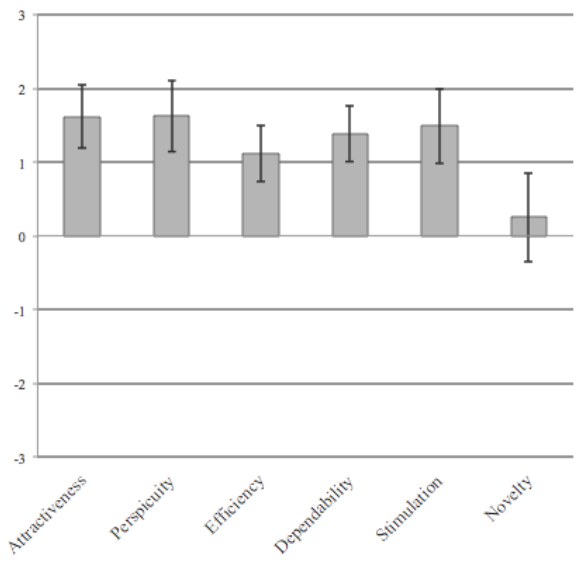AAPHDCS Listserv Project
Let me forward you what’s going on. (Overview)
Check out the full thread below:
Exploratory Research
Some prior messages. (Background)
I did some literature research with a graduate assistant on the rates of Black Americans earning PhDs in computing (computer science, computer engineering, IT, or some closely related program):
High demand for diversity in computing careers
Computing PhDs earned in total by Black Americans: 1% (hasn’t grown much in 20 years)
2017 computing PhD degrees awarded to Black Americans (as of 2017): 18 of 1,648
Current faculty & new hire rates annually for computing PhD Black Americans: 2%
Then I searched literature with the grad assistant on how that would effect those Black American students who do choose to pursue graduate programs in computing:
Influences performance, belief of performance (self-efficacy), and coping mechanisms (resilience)
Influences willingness to participate in computing activities, interest in computing activities, and feelings of belonging
Accessing AAPhdCS listserv
Next, I got access to the African American PhDs in Computer Science (AAPhDCS) listserv
AAPhDCS is an email listserv used to increase and maintain resilience in Black American computing PhD students and professionals who earned a computing PhD
It was created in 1996 by Vernard Martin and Charles R. Hardnett of the Georgia Institute of Technology
Exploring members. (Discovery user interviews)
I developed an interview protocol from identity literature suggestions:
Academic Resilience Scale (Cassidy, 2016)
Phenomenological Variant of Ecological Systems Theory (Spencer et al, 1997)
This resulted in the following codes to investigate resilience and why people use the pilot listerv:
How did users discover AAPhDCS?
What resources from AAPhDCS helps to motivate users?
How do users use AAPhDCS for self-reflection?
How do users approach AAPhDCS to seek help?
How has AAPhDCS influenced their view on the computing field?
Then, I had the grad assistant schedule interviews.
We planned for virtual interviews using phone or video conferencing
We sent an email through AAPhDCS to recruit participants
Participants scheduled an interview time
Then we conducted the virtual interviews.
Interviews were semi-structured
There were 21 participants:.
5 Ph.D. candidates
4 interns or early industry professional researchers
4 graduate students
3 post-doctoral researchers
2 assistant faculty (one at a historically Black college (HBCU), one at a predominately white institution
2 senior industry professional researchers
1 tenured faculty at an HBCU
All Black, Afro-Caribbean, or African American
22-54 year old
14 females & 7 males
Interviews were audio recorded & later transcribed
Then I taught and helped the grad assistant perform a thematic analysis.
we used a hybrid inductive-deductive thematic analysis to code some responses based on suggestions by Spencer et al. (1997)
we checked each other’s work for reliability
What was the reply? (Interview results)
Testing
I have some questions to send over. (UX survey)
I created an online survey and had the grad assistant help.
We used Qualtrics to create the survey
The survey had 2 parts:
Access demographic information and what products/research users worked on
UX assessment using the User Experience Questionnaire (UEQ) which rates a product on attractiveness, learnability,
efficiency, dependability, stimulation, and novelty on a scale from -3 to 3.
The survey was sent through the same email to schedule interviews
We used descriptive statistics to analyze the survey
How did they reply? (UX survey results)
Results from the UEQ suggests participants viewed the AAPhDCS Listserv as
Relatively attractive (M=1.62, SD=0.95)
Relatively clear (M=1.63, SD=1.21)
Relatively efficient (M=1.11, SD=0.73)
Relatively dependable (M=1.39, SD=0.75)
Relatively stimulating (M=1.49, SD=1.36)
Neutral on novelty (M=0.25, SD=1.92)
Forwarding previous messages. (UX during interviews)
There were also UX questions during the discovery interviews
Codes were developed using UEQ suggestions
They made recommendations for users of AAPhDCS and how to improve
Data was analyzed the same as the other portion of the interview
What was marked as important? (UX results from interviews)
Delivery
What are the starred messages? (Conclusion)
Here’s some key insights from this study:
What does AAPhDCS do?
Strengthen resilient identity
Strengthen self-efficacy
Strengthen sense of belonging
Helping abate feelings of loneliness
Access to a relatable community facing similar adversity
Facilitates vicarious experiences through congratulatory emails
Find (Black) computing opportunities and resources
Build their professional networks,
Gain Black mentors
Increases levels of optimism
Gain feedback on work
Why do people join AAPhDCS?
Networking
Mentoring
Share & see accomplishments
How can we improve AAPhDCS?
Improve interactive design to combat lack hedonic quality (stimulation and novelty)
More control over info visibility
Perhaps use another a combination of chat services such as Slack
AAPHDCS App or website?
Message received.
I co-wrote a conference manuscript
I also presented it at IEEE Frontiers in Education Conference in Cincinnati, OH in October 2019
Nelson, W., Cummings, R. T., & Gosha, K. (2019). A qualitative investigation on the effectiveness of a computing identity development emailing list for African American computer scientists. Proceedings of 2019 IEEE Frontiers in Education Conference (FIE). doi:10.1109/fie43999.2019.9028570
This information was also distributed to the administrators of AAPhDCS
They can use these findings to enhance and recreate the existing platform in the ways they see fit.






